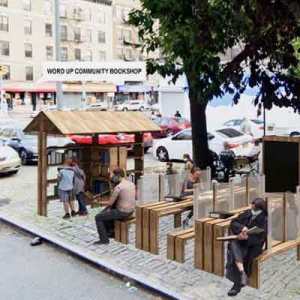
ITS Monday: Edition 43, 2020

This week’s small collection of curated content from the worlds of intelligent transport systems, smart mobility, and associated areas.
Apologies for missing ITS Monday last week – blame the Melbourne Cup and the siren call of taking the Monday off for a 4-day weekend. Included this week: repurposing street space, how to rebuild Sydney after the pandemic, a freight action plan, and more.
And just in case you hadn’t caught it yet, we have a new series of interviews with transport professionals – Effects of COVID on the transport sector – what they see now, what they would like to happen post-pandemic, and what they think will happen. If you’d like to be join this conversation, drop us a line!
Now, scroll down, and see what’s in this week’s edition. Oh, and before you do, be sure check out the quickest way to receive our new content via the subscription box just below …


‘Liveable streets’: how cities are prioritising people over parking
I normally open with an Australian-based article, but this in the Guardian echoes something happening quite a lot here recently, the repurposing on car parking spaces. We’ve been documenting a few on our Linkedin page, along with pictures from other people. If you’re seeing this too we’d love to see your pictures. Here’s the Linkedin link – why not give us a Follow while you’re there!
READ THE ARTICLE
Less parking can mean more housing. Here’s how.
And while on the topic of parking … ‘Combined with new mobility tools, new policies could reduce the need for parking in cities — and help make housing more abundant and affordable.’
READ THE ARTICLE

Suburban meadows, green pipes and a 42km bike track: how to rebuild Sydney after the pandemic
‘Turning a western Sydney water pipeline into a green corridor, creating tiny meadows in inner suburbs and a 42-kilometre walking and cycling trail are among ideas to have received awards in a competition aimed at reinventing the city’s public spaces.’
READ THE ARTICLE
The new normal: Mobility and activity in the after times
A new article on David Levinson’s (get to know David in our recent interview) Transportist blog, based on a topic David will be addressing at the Festival of Urbanism 13-26 November – ‘We may be nearing “peak city”. This shift undermines all of the place-based strategies that economic development organisations have been promoting for decades.’
READ THE ARTICLE
Queensland Freight Action Plan
Download the plans Queensland has in place for all things freight. It’s all looking to happen soon, with this plan covering the years 2020 to 2022.
READ THE ARTICLE

NYC releases terms of e-scooter pilot
New York is looking to begin an e-scooter pilot program in March 2021. Here’s a few details on what it’s looking to do, and of the Request for Expressions of Interest.
READ THE ARTICLE

Technology-Led Disruptions and Innovations: The Trends Transforming Urban Mobility
A new book, by Professor Hussein Dia, Saeed Bagloee, and Hadi Ghaderi, all from the Swinburne University of Technology. ‘Over the past decade, digital innovations have challenged traditional concepts of urban transport and introduced new opportunities for improving people’s access to services and economic opportunities. In response, cities have redefined their technology roadmaps and business strategies and are increasingly encouraging more collaboration between the public and private sectors. Technology and service-led disruptions are not only impacting private car usage models, they are also enhancing multimodal journey planning and payment options which will drive new mobility initiatives in future cities. From data analytics, through to machine learning, on-demand shared mobility, Blockchain, Fog Computing, and connected vehicles, these technologies are set to transform the landscape of urban transport and reduce dependence on private cars. These technologies offer opportunities to measure and monitor city functions, manage the performance of transport infrastructure, and identify where services need improvements.’
READ THE ARTICLE

The new Bike Lane Uprising app makes it easier than ever to report bikeway obstructions
The Bike Lane Uprising app exists as an easy way to report bikeway obstructions, with users sharing information such as photos, license plate numbers, companies associated with vehicles and more.
READ THE ARTICLEDiscover more from iMOVE Australia Cooperative Research Centre | Transport R&D
Subscribe to get the latest posts sent to your email.


